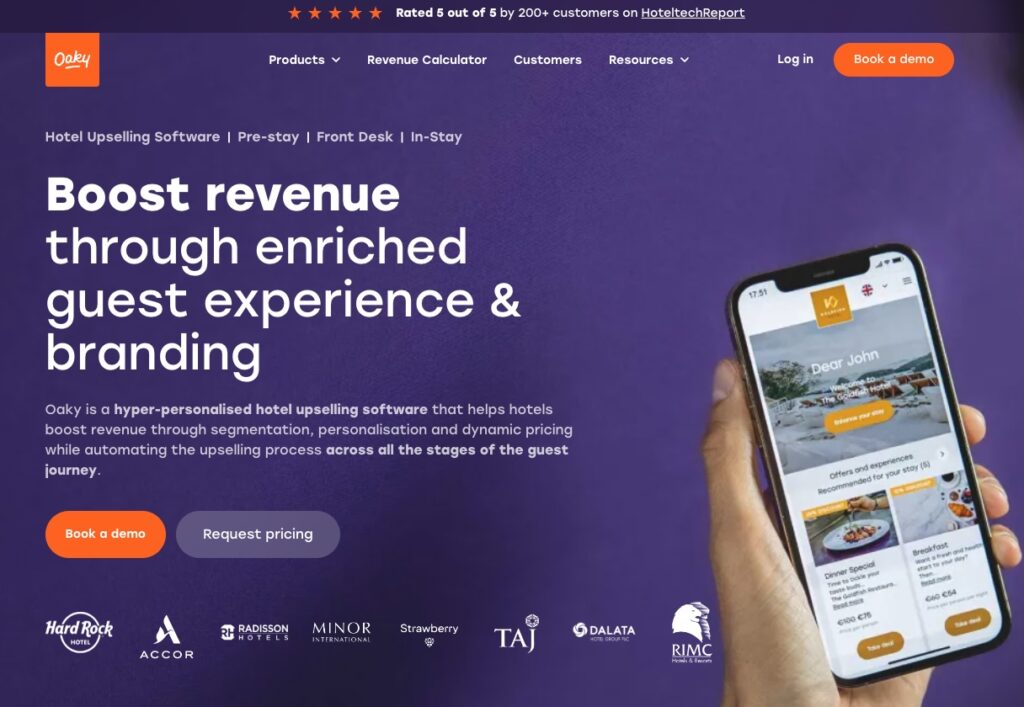
Did you know that 96% of sales are directly attributed to marketing efforts?
At one time, sales reps were able to close deals by simply walking their prospects through the many features and benefits of their product.
Today’s buyers have changed.
Thanks to the internet, they are more informed than ever.
In fact, Hubspot’s 2024 State of Sales Report states that 96% of buyers have already researched solutions for their problems before even speaking to anyone at a company.
The question is, are your prospects getting their information from you or your competitor?
When your sales and marketing teams are aligned with a mission to inspire and educate, you will effortlessly attract your future customers with information that speaks directly to their needs.
That means no more cold calls, no more “just following up” emails, and no more spray-and-pray tactics.
On the InnSync Show, Connor DeLaney and Cory Falter reveal how the right blend of digital-savvy and relationship-building can skyrocket your visibility and demand.
Marketing Ideas for Hotel Vendors & Suppliers
With these powerful marketing ideas, you’ll capture their attention and business, setting you apart as a leader in the hotel supply industry.
Here are some strategies to help you squeeze every drop of potential from your efforts and budget.
Let’s dive in!
In this post, we'll cover:
- Build Relationships Digitally
- Create a Customer-Centric Web Experience
- Lead with Education
- Be a Solution to Their Problem
- Use Customer Success Stories & Social Proof
- Embrace Transparency
- Adopt an Inbound Marketing Approach
1. Build Relationships Digitally
LinkedIn is hosting the biggest networking event, and you’re invited to join every day of the week.
With nearly 5 billion people online, it's crucial to establish connections in the places where your colleagues, customers, and prospects are engaging.
Get started by interacting in social media, forums and through your email distribution to build trust and rapport before the first sales pitch. Lead from a mindset of being helpful rather than “salesy.”
"In hospitality and hotels, it's even more about relationships,” Connor emphasizes, “which I believe relates to a lot of B2B and even some B2C businesses too, where relationships are at the core of what we do. But as this thing called the internet has evolved, that relationship's getting built in different ways.”
RELATED: Dive Deep Into These 11 LinkedIn "Do's" for Social Selling Success
2. Create a Customer-Centric Web Experience
Today's hoteliers are diving deep into research before making a single purchasing decision.
Your job? Make their journey easy.
Look critically at your website, from the perspective of your prospect. Are you answering the question “what’s in it for me?” or are you using it as a digital brochure?
“Customers are doing even more research ahead of time than they did before,” Connor says. “So a lot of them are focused on ‘How can I gather information so that I don't have to waste my time vetting different options?’”
Every click and every scroll on your site should feed their hunger for information.
Think crisp product details, in-depth FAQs, compelling case studies, pricing (yes, pricing!), and glowing testimonials — all designed to answer their biggest questions and soothe their top concerns.
Craft it well, and you'll ease their decision-making and emerge as the go-to guru in the bustling world of hotel vendors and suppliers.
Hot Tip: We recommend following the They Ask, You Answer business framework, which, when embraced fully, will make you the most trusted voice within your industry.
3. Lead with Education
Ditch the sales pitch and turn up the education.
It's about laying the groundwork for trust long before the sales conversation starts.
Transform your website and social media channels into treasure troves of wisdom for hoteliers.
Dive deep into industry trends, dissect challenges, and showcase solutions.
This isn't just content—it's your invitation to engage, a way to spark meaningful conversations with well-informed clients ready to talk solutions, not just products. In the era of informed decision-making, be the beacon of knowledge that guides them home.
According to the Hubspot, 64% of B2B sales pros offer self-service tools to help guide buyers’ purchase decisions, and 85% of them say it’s an effective strategy.
4. Be a Solution to their Problem
Understanding and addressing the specific challenges hoteliers face daily is crucial.
By emphasizing solutions over features in your marketing messages, you can demonstrate empathy and offer tangible relief to their pressing concerns.
Highlighting real-world success stories and engaging in meaningful dialogues further establishes your brand as a trusted partner, deeply invested in their success.
This approach not only showcases your deep understanding of the industry's intricacies but also positions your offerings as the go-to solution for hoteliers looking to navigate their day-to-day hurdles with ease and efficiency.
As Connor puts it, "They're just trying to deal with their day-to-day issues."
Tailor your marketing messages to offer solutions to these problems, showing empathy and understanding.

5. Use Customer Success Stories & Social Proof
No one sells your product or service better than someone who has already purchased it.
Customer success stories and social proof capitalize on the psychological principle that the experiences and recommendations of others influence people's decisions.
When potential clients hear real-life stories of how your product or service has resolved specific challenges, it validates your offerings and builds trust and credibility.
These narratives humanize your brand, allowing prospects to envision the tangible benefits and successes they can achieve.

We like how Oakley features a link to their reviews right out of the gate.
By incorporating testimonials, case studies, and user-generated content into your marketing mix, you ensure your marketing efforts resonate on a personal level, bridging the gap between business and consumer with authentic voices and experiences.
Engage your audience with stories that matter to them, and watch as your brand's credibility and customer base grow.
In leveraging these real, relatable success stories, you transform abstract benefits into concrete results, making your marketing message not just heard but felt.
"Share stories illustrating how your products or services have solved specific problems for other hotels,” Conner says. "Positive experiences from peers can be a powerful influence on purchasing decisions."
6. Embrace Transparency
"Be open about pricing, features, and the benefits of your offerings," Cory advises.
A transparent approach removes barriers and reduces buyers' frustration when information is hard to find.
In addition to being upfront about your products or services, embracing transparency extends to all facets of your business operations—from customer service to supply chain details.
This openness builds trust and fosters a stronger connection with your audience.
Share behind-the-scenes glimpses of your operations, openly address customer feedback, and celebrate your successes as well as acknowledge areas for improvement.
By doing so, you create an environment of trust that encourages loyalty and advocacy among your customer base, turning casual browsers into lifelong supporters.
7. Adopt an Inbound Marketing Approach
When sales and marketing align with the inbound marketing methodology, it will transform your brand and bottom line.
It's about becoming a beacon of value, where every piece of content and every interaction isn't just informative—it's irresistibly engaging.
Connor hits the nail on the head: when clients feel they've gained valuable information from you before spending a dime, you're not just another vendor but a trusted advisor.
This strategy transforms you - and subsequently your brand - into a thought leader, a go-to source for insights, advice, and solutions.
Your commitment to providing genuine value sets you apart in a landscape cluttered with noise.
It compels potential clients to lean in and say, "Let's do this," because you've already started the conversation on the right note—by giving first.
Implementing these marketing strategies can revolutionize how hotel vendors connect with potential clients.
By focusing on building relationships, educating the market, and emphasizing the unique value of your offerings, you can navigate the changing landscape of the hospitality industry and achieve greater sales success.
Remember, as Connor and Cory insightfully point out, the core of successful business relationships remains trust and understanding, even in the digital age.




